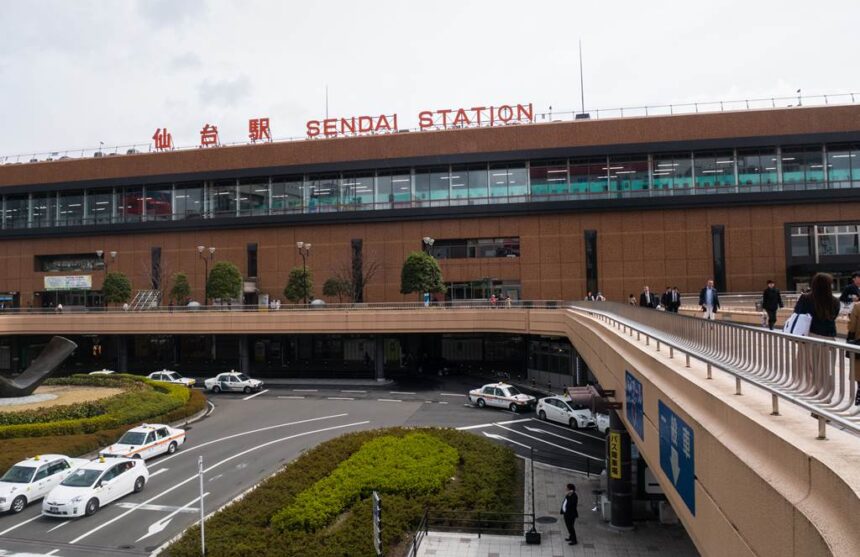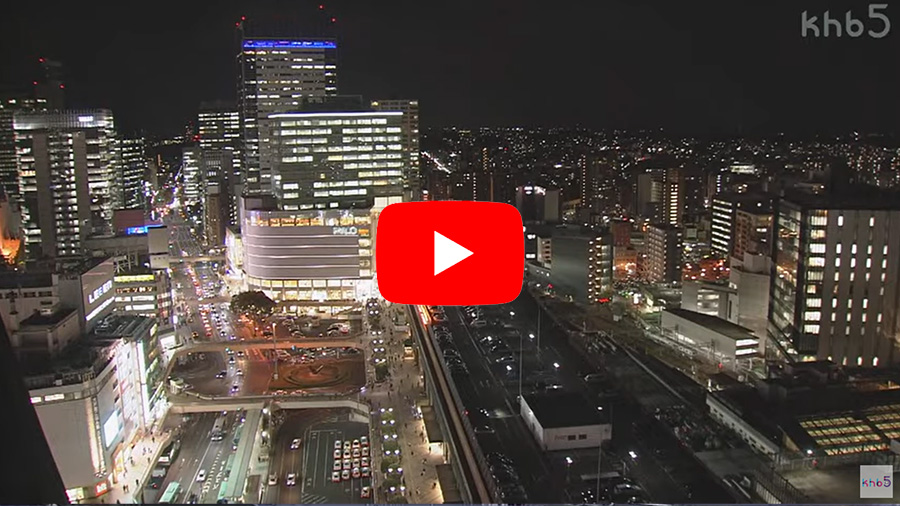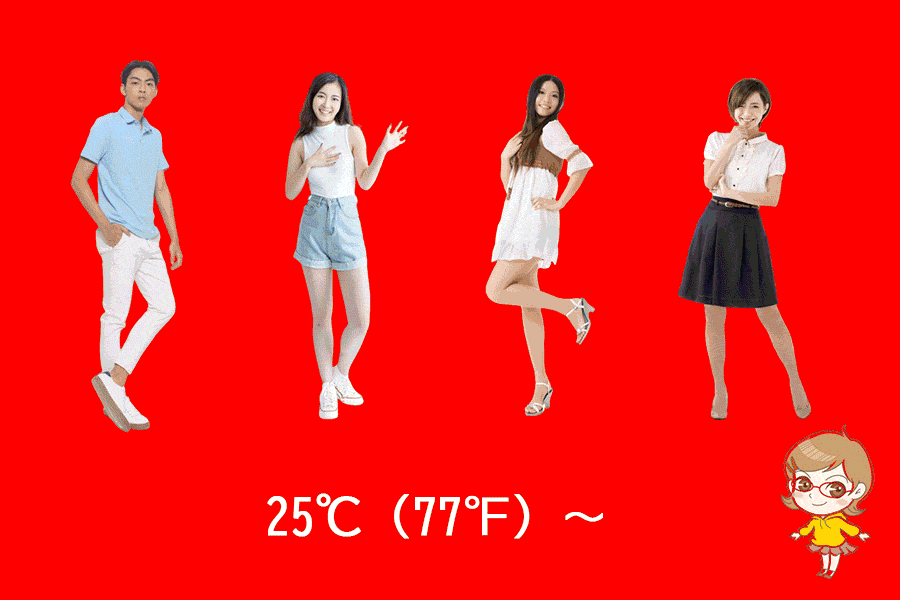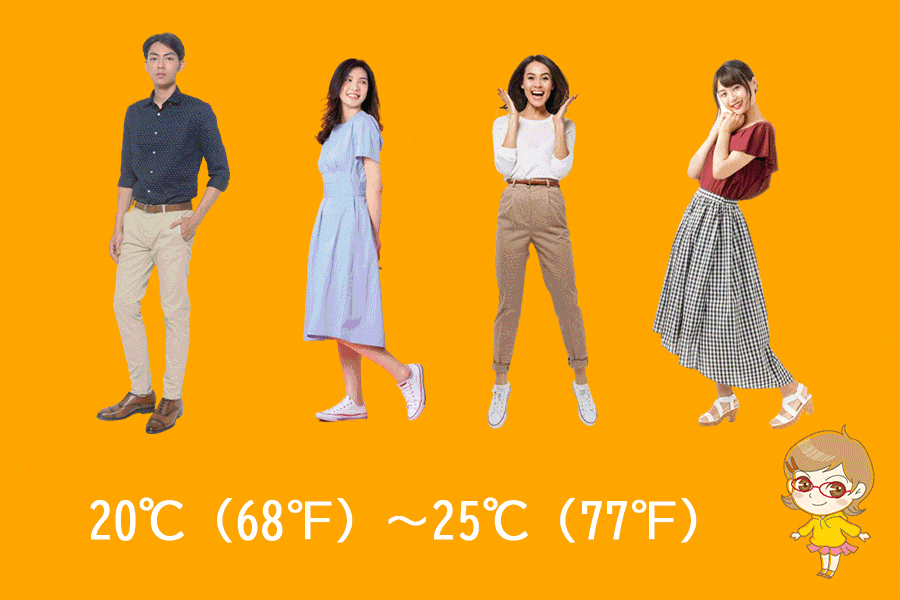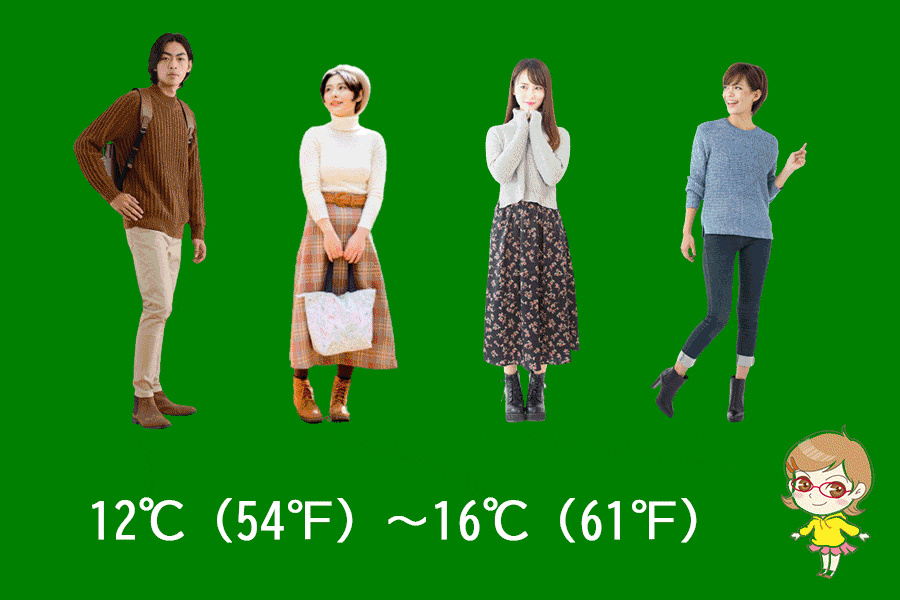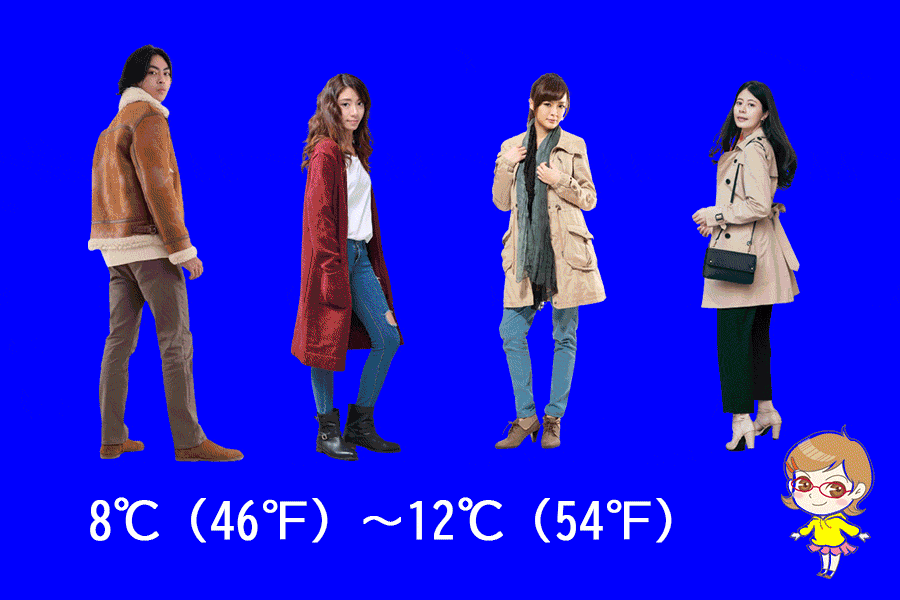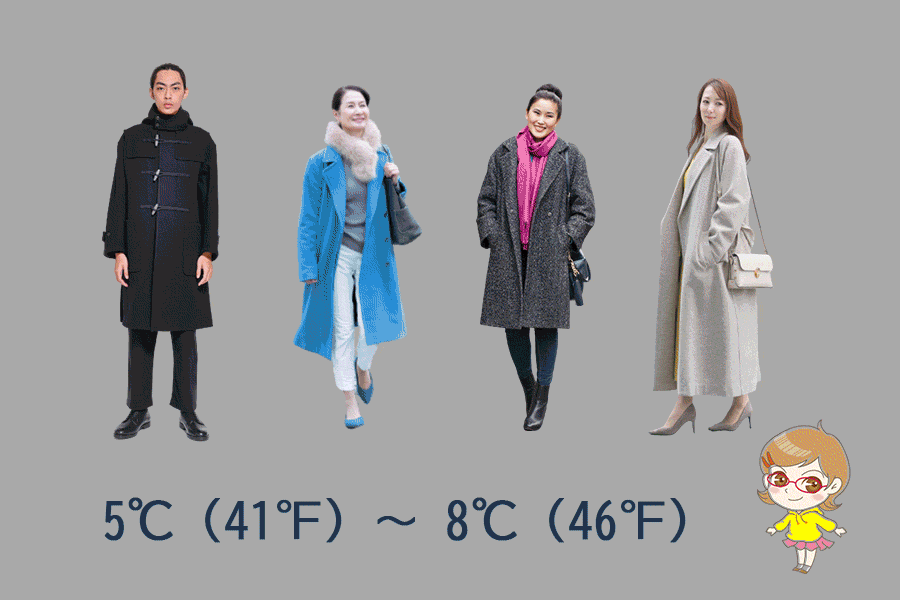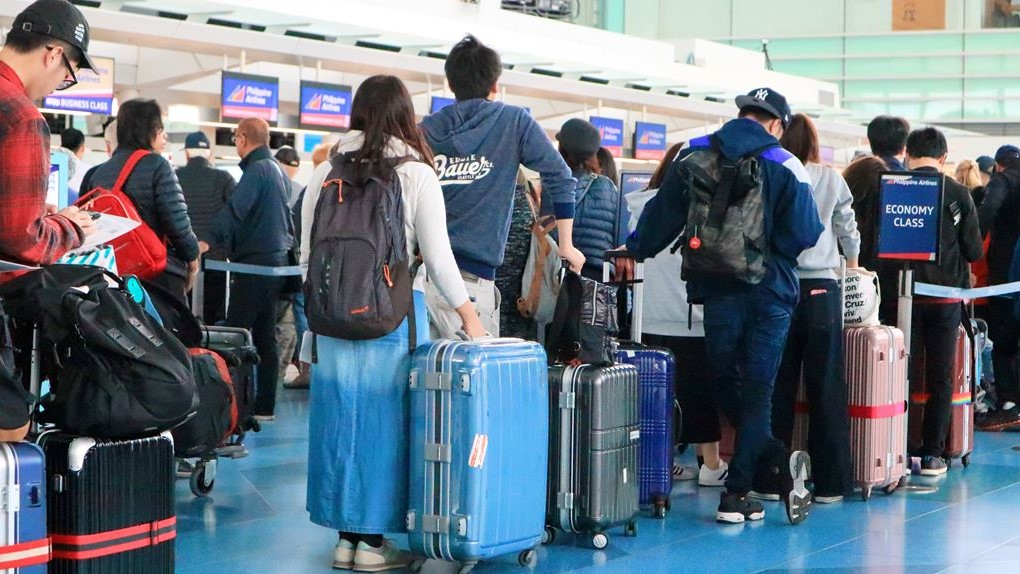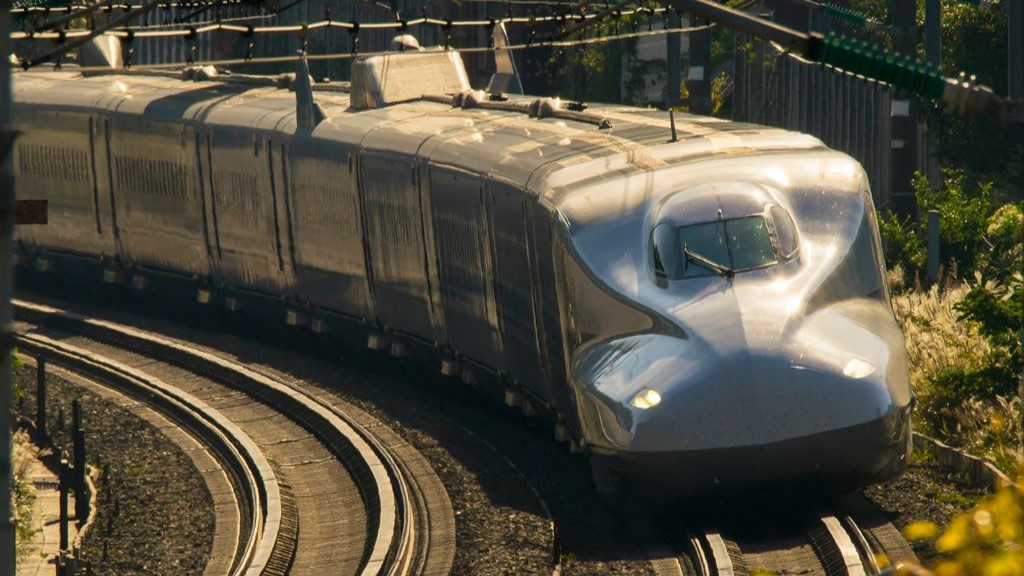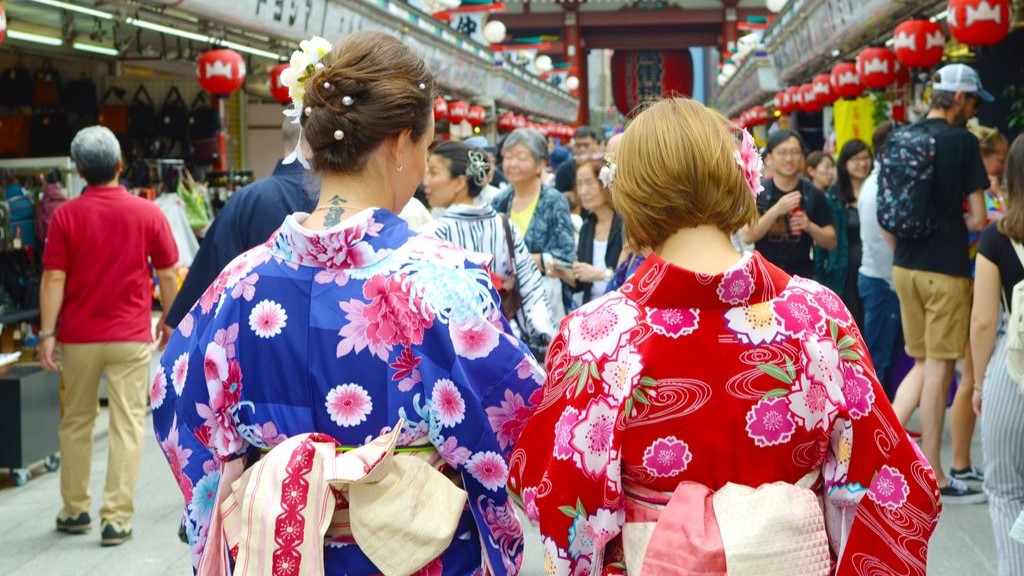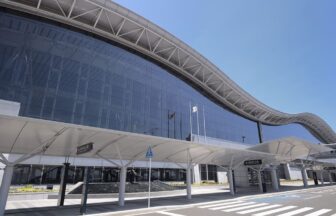1 Chome-1-1 Central, Aoba Ward, Sendai, Miyagi 980-0021 MAP
↓ Click to jump to the relevant section.
| Current Weather | Annual Weather | Tourist Attractions |
| Baggage Deposit | Hotels |
Current weather and clothing

The weather information shown here is the information closest to the station in question. Please note that there may be slight differences.
Yearly temperature changes and recommended clothing
Clothing recommendations for each temperature range
When traveling in Japan with the following average temperatures, the recommended clothing is as follows:
Monthly changes in temperature, precipitation, and snowfall (1991~2020 average, Japan Meteorological Agency survey)
| Jan. | Feb. | Mar. | Apr. | May | Jun. | Jul. | Aug. | Sep. | Oct. | Nov. | Dec. | |
| temperature(°C) | 2 | 2.4 | 5.5 | 10.7 | 15.6 | 19.2 | 22.9 | 24.4 | 21.2 | 15.7 | 9.8 | 4.5 |
| precipitation(mm) | 42.3 | 33.9 | 74.4 | 90.2 | 110.2 | 143.7 | 178.4 | 157.8 | 192.6 | 150.6 | 58.7 | 44.1 |
| snowfall(cm) | 21 | 18 | 11 | 1 | — | — | — | — | — | — | — | 9 |
Winter
December
In December, it is very cold with an average temperature of 4.5 degrees Celsius. You should wear a warm winter coat, gloves, hat, and scarf, along with warm boots or shoes.
January
In January, it is very cold with an average temperature of 2 degrees Celsius. The weather is dry with very little rainfall. You should wear a warm winter coat, gloves, hat, and scarf, along with warm boots or shoes.
February
In February, it is still very cold, with an average temperature of 2.4 degrees Celsius. Like January, the weather is dry with very little rainfall. You should wear the same clothing as you would in January: a warm winter coat, gloves, hat, and scarf, along with warm boots or shoes.
Spring
March
In March, the temperature begins to warm up slightly, with an average temperature of 5.5 degrees Celsius. However, it is still quite chilly, and there is still little rainfall. You should wear a lighter winter coat or a heavy jacket, along with a hat, gloves, and scarf. You may also want to wear warmer shoes or boots.
April
In April, it starts to feel like spring with an average temperature of 10.7 degrees Celsius. It is still cool, but there is less chance of rainfall. You can start to wear lighter jackets, but you should still bring a warm layer, like a sweater, just in case.
May
In May, the temperature continues to warm up, with an average temperature of 15.6 degrees Celsius. It is a great time to enjoy the spring weather. You can wear light jackets or sweaters, and comfortable pants, skirts, or dresses.
Summer
June
In June, it is warm with an average temperature of 19.2 degrees Celsius. It can be quite humid, so you may want to wear lighter clothing made of breathable materials, like cotton or linen.
July
In July, it is very warm with an average temperature of 22.9 degrees Celsius. It is also very humid, so you should wear lightweight and breathable clothing like cotton or linen t-shirts, shorts, or skirts.
August
In August, it is hot with an average temperature of 24.4 degrees Celsius. It is still very humid, so you should continue to wear lightweight and breathable clothing like cotton or linen. You can also wear a hat to protect yourself from the sun.
Autumn
September
In September, the temperature starts to cool down with an average temperature of 21.2 degrees Celsius. It is still warm, but you may want to bring a light jacket or sweater in case it gets chilly.
October
In October, it starts to feel like fall with an average temperature of 15.7 degrees Celsius. It can be quite cool, especially in the evenings, so you should wear a light jacket or sweater. You can also wear long pants and closed-toe shoes or boots.
November
In November, it is getting colder with an average temperature of 9.8 degrees Celsius. You should wear a warm coat or jacket, a hat, gloves, and a scarf. You can also wear long pants and closed-toe shoes or boots.
Recommended tourist destinations
Matsushima Bay
Matsushima, Matsushima-machi, Miyagi-gun 981-0213 Miyagi Prefecture
This beautiful bay with 200 small islands covered with pine trees has long been known as one of the most scenic spots in Japan.
Take the JR Senseki Line from JR Sendai Station to Matsushima-kaigan Station. The trip takes 30 minutes one way.
Sendai Castle Ruins
1 Kawauchi, Aoba-ku, Sendai 980-0862 Miyagi Prefecture
There is no castle tower or other structure, only stone walls, but the view of the city of Sendai is magnificent.
Zuihoden
23-2 Otamayashita, Aoba-ku, Sendai 980-0814 Miyagi Prefecture
The mausoleum of the Date clan, which once ruled the area around Sendai. Approximately 7 minutes by cab from Sendai Station.
Jozenji-dori Avenue
Aoba Ward, Sendai, Miyagi
This is a main street in the center of Sendai City, lined with beautiful zelkova trees, about 700 meters long. It is a representative spot of Sendai.
Ruins of the Great East Japan Earthquake Sedai Arahama Elementary School
32-1 Arahama Shinborihata, Wakabayashi-ku, Sendai 984-0033 Miyagi Prefecture
Ruins of an elementary school showing the damage caused by the Great East Japan Earthquake in 2011.
Where to leave your luggage
JR Sendai Station is a large station with three floors and seven coin locker locations.
1) 1st floor, West Exit Taxi Stand
2) 2nd floor, next to the central ticket gate
3) 2nd floor, in front of the central ticket gate
4) 2nd floor, in front of the police box at the west exit
5) 3rd floor, near the Shinkansen central exit
6) 3rd floor, Gourmet Street (Gyutan Street) entrance
7) 3rd floor, Gourmet Street (Sushi Street) entrance
At Sendai Station, there is a “Suica Locker Search System Machine” near the central ticket gate on the 2nd floor. You can see the availability and locations there, so please use it.
Recommended hotels and inns
Hotel Metropolitan Sendai East
1-1-1 Chuo, Aoba-ku, Sendai 980-8487 Miyagi Prefecture
Directly connected to JR Sendai Station
Hoetl class: 3
Hotel style: Charming, Family
Check Rates & Availability:
>> See on Tripadvisor
>> See on Trip.com
>> See on Expedia
Richmond Hotel Premier Sendai Ekimae
1-1-1 Chuo, Aoba-ku, Sendai 980-8487 Miyagi Prefecture
3-minute walk from JR Sapporo Station.
Hoetl class: 4
Hotel style: Mid-range, Modern
Check Rates & Availability:
>> See on Tripadvisor
>> See on Trip.com
>> See on Expedia
Sendai Washington Hotel
4-10-8 Chuo Aoba-ku, Sendai 980-0021 Miyagi Prefecture
3-minute walk from JR Sapporo Station.
Hoetl class: 3
Hotel style: Trendy, Modern
Check Rates & Availability:
>> See on Tripadvisor
>> See on Trip.com
>> See on Expedia
Mitsui Garden Hotel Sendai
2-4-6 Honcho, Aoba-ku, Sendai 980-0014 Miyagi Prefecture
12 minutes walk from JR Sendai Station West Exit. 1 minute walk from Hirose-dori Subway Station
Hoetl class: 3
Hotel style: Mid-range, Modern
Check Rates & Availability:
>> See on Tripadvisor
>> See on Trip.com
>> See on Expedia
Almont Hotel Sendai
3-4-10 Chuo Aobaku, Sendai 980-0021 Miyagi Prefecture
5 minutes walk from JR Sendai Station West Exit.
Hoetl class: 3
Hotel style: Family, Charming
Check Rates & Availability:
>> See on Tripadvisor
>> See on Trip.com
>> See on Expedia
Daiwa Roynet Hotel Sendai
1-2-37 Tsutsujigaoka, Miyagino-ku, Sendai 983-0852 Miyagi Prefecture
2 minutes walk from JR Sendai Station East Exit.
Hoetl class: 3
Hotel style: Mid-range, Modern
Check Rates & Availability:
>> See on Tripadvisor
>> See on Trip.com
>> See on Expedia
Hotel JAL City Sendai
1-2-12 Kakyoin, Aoba-ku, Sendai 980-0013 Miyagi Prefecture
3 minutes walk from JR Sendai Station West Exit.
Hoetl class: 3
Hotel style: Business
Check Rates & Availability:
>> See on Tripadvisor
>> See on Trip.com
>> See on Expedia
We support your itinerary planning!
Click the button to get an overview of hotel information and popular tourist routes from all over Japan featured on our site. We’ve included comprehensive details to aid in planning your trip, so please make use of it.
Comprehensive checklist before traveling to Japan
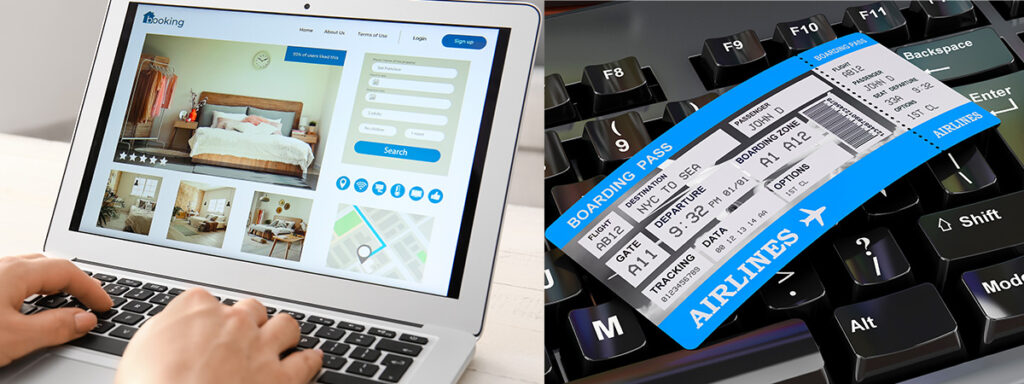
Book flights
Compare and purchase flight tickets
When planning your trip to Japan, it's advisable to start by researching flights several months in advance. Airlines often release promotional fares, especially during off-peak seasons. Use comparison sites like Skyscanner or KAYAK to get a sense of the price range. Be flexible with your travel dates if possible; flying mid-week might be cheaper than on weekends.
>> Visit Skyscanner's official website
>> Visit KAYAK's official website
Order Japan Rail Passes for each family member
Purchase your Japan Rail Pass before departure
The Japan Rail (JR) Pass offers unlimited travel on JR trains, making it a cost-effective option for tourists. However, it's only available to foreign tourists and must be purchased *before* you arrive in Japan. Determine the areas you plan to visit; if you're traveling extensively, a nationwide pass is beneficial, but if you're only exploring a specific region, consider regional JR passes. Children under 12 get a discounted pass, so ensure you order the correct type for each family member.
>>Visit Japan Rail Pass's website
Plan your attire for Japan
Check the weather at your destination on this site
Japanese weather varies significantly by season. In summer, it's hot and humid, so breathable clothes are essential. Winters, especially in the north, can be cold, requiring warm attire. If visiting during the rainy season (June to early July), pack a good umbrella and waterproof shoes. While Japan is generally casual, certain places like temples, shrines, or upscale restaurants may require modest and neat dressing.
Reserve a pocket Wi-Fi or SIM card
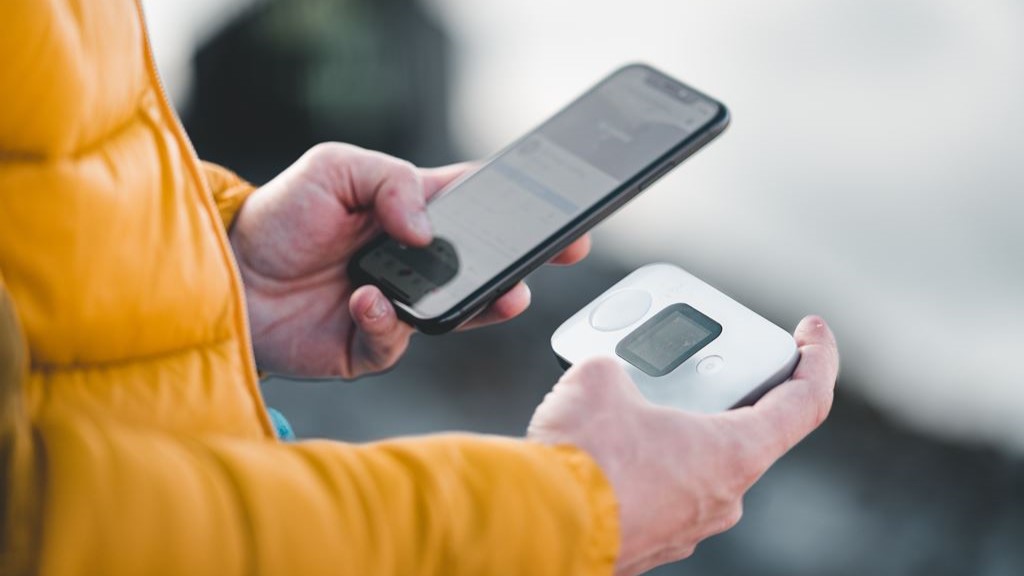
SIM card or pocket Wi-Fi is required
Beyond clothes, consider packing essentials like a universal power adapter (Japan uses Type A and B sockets), portable Wi-Fi or SIM card for internet access, and any necessary medications (with a copy of the prescription).
Which is better: a SIM card or pocket Wi-Fi?
When traveling in Japan, one essential to consider is securing internet access, especially given that many locations still don't offer free Wi-Fi. To ensure you can use your smartphone throughout your trip, you'll typically have three options: (1) a SIM card, (2) pocket Wi-Fi, or (3) the roaming service provided by your mobile company. Roaming services can be quite expensive, so we often recommend using a SIM card or pocket Wi-Fi. While SIM cards tend to be more affordable than pocket Wi-Fi, they can be trickier to set up. Pocket Wi-Fi, on the other hand, can be shared among several users, making it a favorable choice for families or groups.
▼SIM card
Advantages:
Relatively affordable.
Disadvantages:
Can be time-consuming to set up initially.
May have strict data limits.
▼Pocket Wi-Fi
Advantages:
Offers substantial data allowances.
A single device can be shared among multiple users.
Easily usable with PCs as well.
Disadvantages:
Typically more expensive.
Japan's representative services
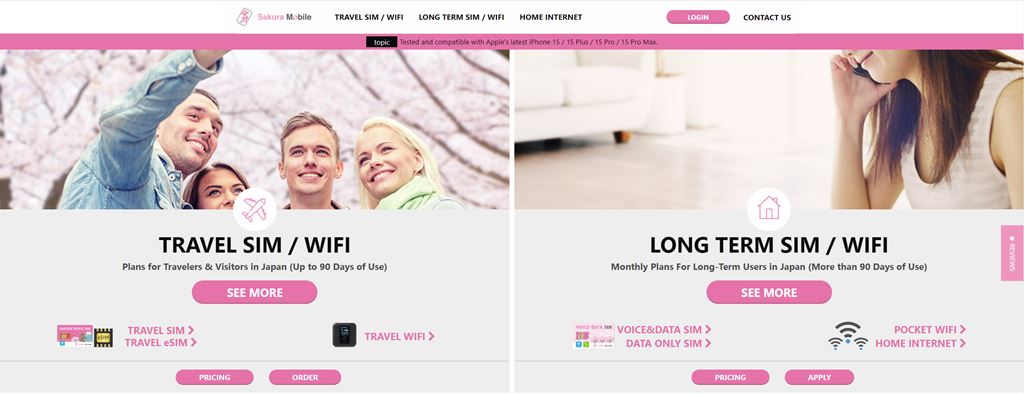
Sakura Mobile's website
▼SIM card
>>Visit Sakura Mobile's official website
>>Visit mobal's official website
▼pocket Wi-Fi
>>Visit Sakura Mobile's official website
>>Visit NINJA WiFi's official website
>>Visit Wi-Fi RENTAL Store's official website
Book local tours as needed
Pre-book your tour and have a great trip!
Local tours offer deep insights into Japan's culture and heritage. Websites like Viator or GetYourGuide offer a variety of tours, from traditional tea ceremonies to modern pop culture tours in Akihabara. Consider unique experiences like staying with monks on Mt. Koya or taking a cooking class to learn authentic Japanese dishes.
>>Visit Viator's official website
>>Visit GetYourGuide's official website
Purchase advance tickets for popular attractions
Make a reservation to avoid crowds
Attractions like Tokyo Disneyland, Universal Studios Japan, or the Studio Ghibli Museum often have long ticket queues. Buy tickets online in advance to save time. Some attractions also have timed entry, so check the specific time slots available and plan accordingly.
▼Tokyo Disney Resort
>>Visit Tokyo Disney Resort official website
>>Visit Viator's Tokyo Disneyland page
>>Visit Viator's Tokyo DisneySea page
>>Visit GetYourGuide's Tokyo Disneyland page
>>Visit GetYourGuide's Tokyo DisneySea page
▼Universal Studios Japan
>>Visit USJ official website
>>Visit Viator's USJ page
>>Visit GetYourGuide's USJ page
Buy travel insurance

insurance concept, health, life and travel insurance
It is important to be prepared for emergencies
While Japan is a safe country, travel insurance is crucial for unforeseen events like health emergencies, travel disruptions, or lost baggage. Ensure your policy covers medical expenses in Japan, as healthcare, though excellent, can be expensive.
Here we introduce online travel insurance services that are popular worldwide.
World Nomads: An online travel insurance service widely endorsed by travelers worldwide. They offer plans that cover adventurous activities and high-risk sports.
>>Visit World Nomads' official website
AIG Travel Guard: An insurance service available to travelers all over the world. They offer a wide range of options, including cancellation protection and emergency medical insurance.
>>Visit AIG Travel Guard's official website
Share your itinerary with emergency contacts
Organize your reservation information
Keep a digital and printed copy of your detailed itinerary, including hotel addresses, train schedules, and booked tours. Share this with a trusted family member or friend not traveling with you.

